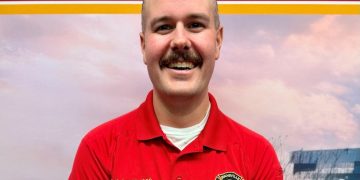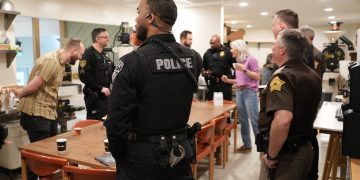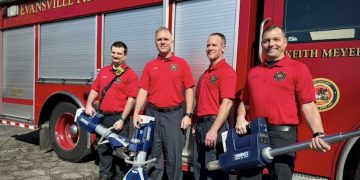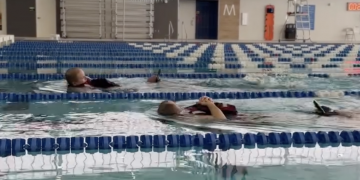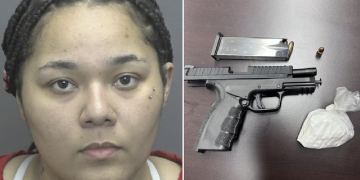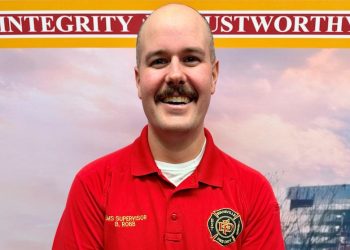An eight-year-old boy, Connor Cagle, diagnosed with Duchenne muscular dystrophy, a muscle-wasting disease, was nervous about his echocardiogram at the Neurology & Neuromuscular Care Center in Denton.
In the exam room at the Neurology & Neuromuscular Care Center in Denton, pediatric cardiologist Dr. Reenu Eapen reassured him that the ultrasound of his heart would not hurt. But after Connor’s diagnosis of Duchenne muscular dystrophy, doctors’ appointments have been places of needle pokes and anxiety. The cardiology appointment is one of several Connor had on Thursday as part of the newly opened CureDuchenne clinic. The clinic is one of the first in Texas where patients can see a cast of specialists, regardless of insurance status. Duchenne is a muscle-wasting disease that has no cure. Boys, in particular, are affected by the genetic disease that starts showing signs in early childhood. Around 20,000 children are diagnosed with the condition each year, and most will die in their late twenties or early thirties.
In the grand scheme of Duchenne, Connor is fairing pretty well. Right now, he can still walk, although he gets fatigued easily. But the disease eventually will cause his muscles to atrophy, making tasks like sitting up or feeding himself impossible. The Cagles drove an hour-and-a-half from Weatherford to see Dr. Diana Castro, the head of the CureDuchenne clinic. They previously had to plan fundraisers and bake sales to pay for Connor’s care before finding Castro’s clinic. The couple hand-picked their staff, including a full-time physical therapist and a group of three pediatric cardiologists who rotate shifts on CureDuchenne clinic days.
Castro nearly left medicine in April 2021 after 14 years of working at a major hospital burned her out. Castro’s husband, pediatric intensive care specialist Dr. Shai Manzuri, made a last-ditch attempt to convince his wife to stay in the field. With a $500,000 bank loan and a $900,000 CureDuchenne grant, the Neurology & Neuromuscular Care Center became a reality. The private, non-profit center sees patients with a range of conditions, including spinal muscular atrophy and Becker muscular dystrophy. Each Wednesday night, practice manager and nurse Siera Gravo sends the staff a detailed choreography for the next day.
The CureDuchenne clinic aims to provide patients with a better quality of life through specialized equipment and medications. But the lack of understanding surrounding Duchenne and the high cost of treatment and care often make it a difficult and expensive fight for patients and their families. Castro sees only six patients per day, but she doesn’t turn patients away, even if they are uninsured or underinsured. The three-year CureDuchenne grant helps, but it’s not enough to cover everything. Castro conducts research through the center’s for-profit research arm with the goal of using innovative methods to tackle the disease.














